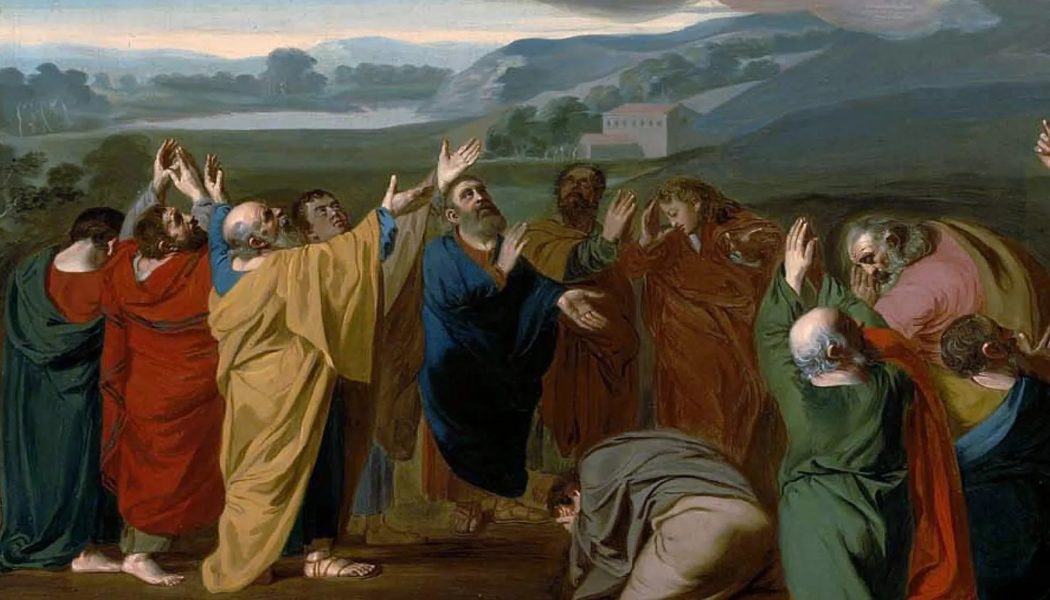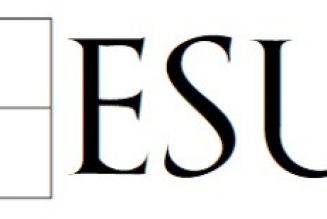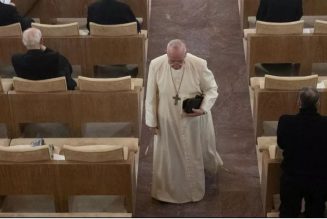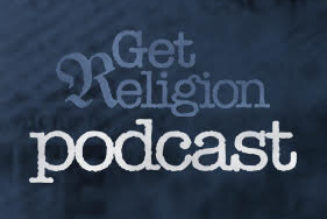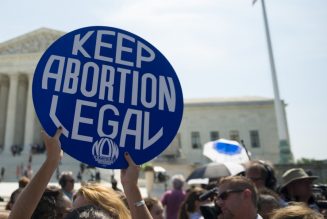
“The Word became flesh and dwelt among us,” is how it started. “Why are you standing there looking at the sky? This Jesus who has been taken up from you!” is how it ended.
He lived with us, walked with us, taught us, lived as an example for us, gave his life for us. And then he left.
Now we live his life for him.
The readings this Sunday are all about what that means, whether your diocese celebrates the Seventh Sunday of Easter Year A or Ascension Sunday, Year A.
The consequence of Jesus’s words about his departure are enormous.
“Go, therefore, and make disciples of all nations, baptizing them in the name of the Father, and of the Son, and of the Holy Spirit, teaching them to observe all that I have commanded you,” he says in the Ascension Gospel.
This is a mission statement for the Church, but also a report card for what we have done.
- How is the Church doing? If the Church is making disciples, it’s doing well; if it isn’t making disciples, it isn’t even functioning as a Christian organization.
- How is your parish doing? If it is baptizing every new Parish baby plus more from the community, it’s doing fine. If not, it’s a nonstarter.
- How are you as a Christian and Catholic? If you’re helping people follow the commandments by your words and witness, you are doing great. But if you aren’t, you’re not.
It’s also a great way to determine what apostolates to support. Does an organization make disciples, promote baptism and teach the commandments? Support it. Does it do good work but avoid those things? Help it change or drop it and find one that does.
After all, on the Seventh Sunday of Easter, Jesus says in his prayer to the Father, “the words you gave me I have also given to them.” He is the Word of God — but now his words are silent when we are. He concludes, “And now I will no longer be in the world, but they are in the world, while I am coming to you.” He will exit; we will remain.
In Advent, at the beginning of the liturgical year, we remembered the terrible darkness of a Christless world. That darkness will return if we don’t cooperate with Jesus Christ today.
“You will be my witnesses in Jerusalem, throughout Judea and Samaria, and to the ends of the earth,” he says. It’s up to us now. We will show him to the world — or he will be absent throughout Judea, Samara and to the ends of the Earth, because our witness is absent.
But this isn’t a burden or an impossibility, because of who Jesus is.
Who is he? He says who in the Seventh Easter Sunday’s Gospel: The Father gave Jesus “authority over all people.” He adds at the Ascension: “All power in heaven and on earth has been given to me.”
What is that authority for? “So that your son may give eternal life to all you gave him.”
The meaning of life is more life. Think of God as he was known in the Old Testament. He is Being Itself, who told Moses his name is “I am who am.” He pours forth all being. Because he says “I am who am,” Moses can say, “I am Moses,” and we can say who we are too. If there was no God, there would be no Moses, no me, no you.
Now Jesus says who he is: “I am the way, the truth and the life.” Jesus is the Life who came to give us life abundantly. He pours forth life, in sacraments, which give us his life; in prayer which connects us to his life; in his doctrines which protect and promote life; and in our vocations, which give shape, meaning and purpose to our lives.
So his demand isn’t just that we go capture more people into the trap of being beholden to his rules; his demand is that we go and release more people from the trap of not getting all there is out of life. By sharing baptism, morality and purpose, we give eternal life to a lifeless world, because we give Jesus Christ to a Christless world.
If this seems like a daunting task, it is. But the Holy Spirit has done it before in America and will do it again, if we cooperate.
The Seventh Sunday of Easter First Reading says the apostles “devoted themselves with one accord to prayer, together with some women, and Mary the Mother of Jesus” and his brothers. On the Ascension Jesus promises “in a few days you will be baptized with the Holy Spirit.”
The Holy Spirit is the source of Jesus’s words spoken by Peter when he can finally preach fearlessly after Pentecost; the Holy Spirit will be the source of our words as we rejoin Peter’s project in the 21st century.
Pope Benedict XVI, when he visited America in 2008, described how. In Yankee Stadium he rehearsed “the history of the Church in the United States: its first great chapter of growth, including:
- “the successive waves of immigrants whose traditions have so enriched the Church in America.”
- “the strong faith which built up the network of churches, educational, healthcare and social institutions which have long been the hallmark of the Church in this land.”
- “countless fathers and mothers who passed on the faith to their children;”
- “the steady ministry of the many priests who devoted their lives to the care of souls.”
- and “the incalculable contribution made by so many men and women religious, who not only taught generations of children how to read and write, but also inspired in them a lifelong desire to know God, to love him and to serve him.”
Then, he gave Americans our marching orders on how to cooperate with the Holy Spirit in the 21st century: Live the “Thy kingdom come!” of the Our Father.
- First, Thy kingdom come “needs to shape the mind and heart of every Christian in this nation,” he said.
- Second, Thy kingdom come “needs to bear fruit in the way you lead your lives and in the way you build up your families and your communities … not losing heart in the face of resistance, adversity and scandal.”
- Third, Thy kingdom come has to reach “every sector of society” — business, media, science, education; everywhere — “rejecting a false dichotomy between faith and political life, since, as the Second Vatican Council put it, ‘there is no human activity – even in secular affairs – which can be withdrawn from God’s dominion’ (Lumen Gentium, 36)”.
There is only one way to get these things done.
In front of us in every Catholic Church we see where Jesus gave these gifts in history and where he gives them each day.
He gave the gifts of his kingdom to us from the cross, and he gives them to us from the altar.
From the cross he died in our place, reconciling us to the Father and reopening paradise to us.
On the altar he offers a way for all of us — every apostolic, sacramental Christian throughout space and time — to enter into that one sacrifice. And from that altar, he provides us his body, blood, soul and divinity that delivers his life to us, a giant channel of grace making it possible to live his life here on earth before he returns.
